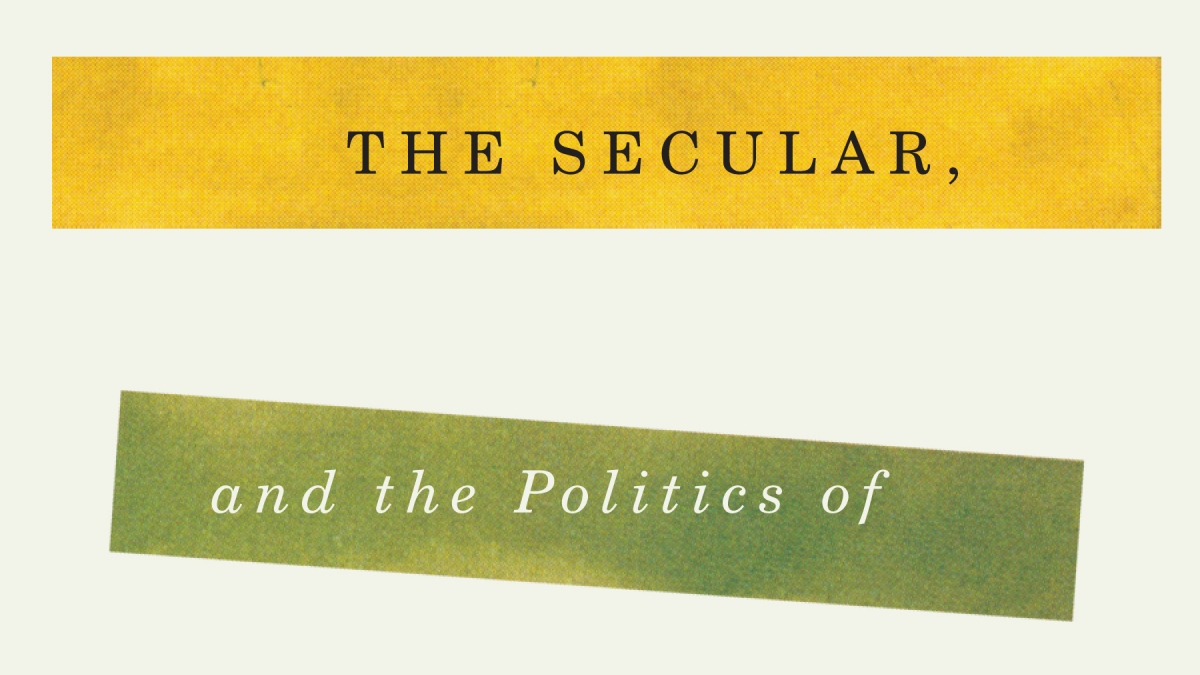New book questions conventional wisdom on religion, secularism, gender

When Malala Yousafzai, the Pakistani teenager shot in the head by the Taliban for advocating girls’ education, lost out on the Nobel Peace Prize this year, a Taliban spokesman said, “We are delighted that she didn’t get it ... This award should be given to the real Muslims who are struggling for Islam. Malala is against Islam, she is secular.”
The implication seems clear: If you support women’s rights, you must be secular.
One does not have to belong to the Taliban to share this point of view; it is conventional wisdom that women’s rights and secularism go hand-in-hand, while religion reinforces traditional gender roles.
According to a new book of essays edited by two Arizona State University faculty members, the reality is not quite so black and white. Secularism does not always advance women’s rights, while religion does not always suppress them.
In the book, “Religion, the Secular, and the Politics of Sexual Difference,” scholars from some of the world’s most prestigious universities discuss why many prevailing assumptions about religion, secularism and gender rights need to be re-examined and, in some cases, revised.
“Religion conjures up superstition, authoritarianism and otherworldly escapism, while secularism lays claim to reason, freedom and the betterment of this world,” says Linell Cady, director of the ASU’s Center for the Study of Religion and Conflict who, along with ASU religious studies professor Tracy Fessenden, co-edited the book. “Assumptions such as these are entrenched in modern scholarship and widely impact individuals, governments and civil societies.”
In the book’s opening essay, Joan Scott, a scholar at the Institute for Advanced Study in Princeton, points out some of the fallacies in these assumptions. She argues that secularization is not inherently liberating for women, while the beginnings of feminism are tied to religious motivations.
Scott reminds readers that the founders of our modern secular nation-states did not consider women as political equals and excluded them from politics. American women did not win the right to vote until 1920, and French women until 1944.
Conversely, today’s feminists often forget that Christian women were the first to venture into the public sphere and gain political clout, during the 18th- and 19th-century temperance and abolitionist movements.
“The first wave of feminism drew on deeply held religious principles for its arguments,” Scott writes. “Indeed, it was white Protestant women who staffed the temperance, abolition, peace and purity movements, gaining a space in public life as voices of Christian morality.”
Margot Badran, a senior fellow at Georgetown University, writes about Muslim women in late 19th- and early 20th-century Egypt. During this period, Egypt saw the simultaneous rise of a secular state and society and the reconfiguration of religion within the private domain.
While the secularist movement did improve women’s chances for education and paid work, it also reinforced gender inequality within the private sphere of the nuclear family. The state allowed conservative religious forces to enact a powerful and tenacious system of patriarchal control.
“Under the new codified law, built on a patriarchal construction of the family, upholding male privileges and power, women fared less well,” Badran writes.
Michigan State University professor Gene Burns, another contributor to the volume, argues that secular liberalism, paradoxically, can hinder gender equality by allowing citizens the freedom to spend their time and energy in quite illiberal spaces, from family life to the workplace to the religious sphere. Burns’ focus is on the Catholic Church.
“The Catholic hierarchy currently stakes a great deal of its authority on opposition to secular liberal morality, especially in matters of sexual morality,” argues Burns. “To the extent that the [secular] state takes a laissez-faire approach to any part of society ... then dominant groups and dominant cultural assumptions will have considerable power to shape social reality.”
The concept for the book grew out of several projects undertaken by the Center for the Study of Religion and Conflict, including a $775,000 grant from the Ford Foundation that examined the nature and varieties of secularism. The culmination of that project was a conference on the role of gender in conflicts over religion and secularism. The book includes a number of essays based on presentations from that conference.
In addition to the book, the center also recently issued a report on religion, gender and human rights in international affairs.
“The role of gender in conflicts at the intersections of religion, secularism and human rights is a critical, yet seriously under-examined area,” says Cady. “Our work has explored these conflicts in an effort to move past the simplistic oppositions that actually hinder women’s continued advancement.”
The Center for the Study of Religion and Conflict is a research unit of the College of Liberal Arts and Sciences that examines the role of religion as a driving force in human affairs. Cady and Fessenden are both professors in the School of Historical, Philosophical and Religious Studies, an academic unit of the College of Liberal Arts and Sciences.
Written by Barby Grant